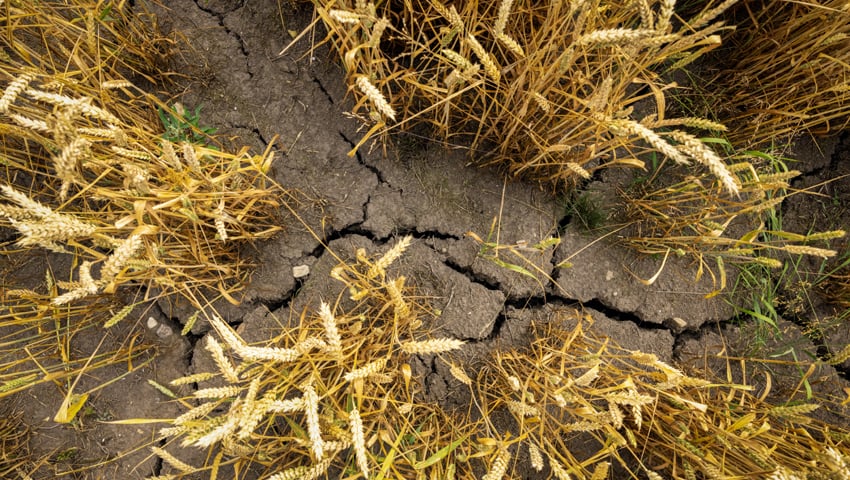- Government is relying on technologies that we don’t have
- It will be very difficult to produce the water and the food that we need
- Delivering against 2030 and 2035 net zero targets “even less certain than last year”
- In just seven years, the recent rate of annual emissions reduction (excluding electricity) must quadruple
- “We will leave a world which is too hot for people to live in.”
Following last year’s High Court ruling, the UK Government has published the Carbon Budget Delivery Plan, providing much greater transparency on its Net Zero plans. However, despite over 3,000 pages of new detail, the Climate Change Committee’s (CCC) confidence in the UK meeting its goals from 2030 onwards is now markedly lower than it was a year ago.
The CCC says that a key opportunity to push a faster pace of progress has been missed.
UK greenhouse gas emissions have so far fallen 46% from 1990 levels. At COP26, a stretching 2030 commitment was made to reduce them by 68%.
This means that in just seven years, the recent rate of annual emissions reduction outside the electricity supply sector must quadruple, and, says the CCC, time is now very short to achieve this change of pace.
They say that the UK government continues to place its reliance on technological solutions that have not been deployed at scale, in preference to more straightforward encouragement of people to reduce high-carbon activities. The Committee has again flagged the risks of a policy programme that amongst other things is too slow to plant trees and roll-out heat pumps.
The Guardian reports that fewer homes were insulated last year under the government-backed scheme than the year before, despite soaring energy bills and a cost-of-living crisis. There is little progress on transport emissions, no coherent programme for behaviour change, and still no decision on hydrogen for home heating. Meanwhile the installation of new wind and solar farms and the upgrading of the electricity grid are still too slow to meet net zero, which says that the lack of urgency of government and a failure of political leadership means progress has stalled.
Interviewed on the BBC Radio 4’s Today programme, Lord Deben, the chair of the Committee on Climate Change said “If we don’t fight climate change we will leave a world which is too hot for people to live in, it will have migratory people moving all over the world, moving away from the floods and the heat, and we will not give to our children the kind of world which we have received.
“The fact of the matter is that the longer we leave it the more difficult and more expensive it is. It also means that you create more climate change and then you have to protect yourself against that.”
Lord Deben explained that “UK courts told the government they needed to explain how they were going to deliver against mid-level net zero targets for 2030 and 2035. The Government submitted 3,000 pages which were scrutinized by the Committee on Climate Change.
“We think it’s even less certain than last year when we looked at it – the reason is that the government is relying for example on technologies that we don’t have; it is not doing the things which we have to do; it is arguable that not much more than about 33% is in place. We’ve got to have the rest of this in place by law.”
“2030 and 2035 were the two dates the government chose to set these targets when they had the very successful Glasgow summit. The awful thing is that they have missed out on all they did in the Glasgow summit, they’ve missed out on what could have been done for cheap renewable energy during this awful cost of living crisis and the energy crisis.”
“They’ve failed to do the things they said they would do, and that’d why we’ve had to be very tough about it.”
The minister of state for energy and net zero was reported as saying that the government has met all of its carbon targets to date, and that this is why they are confident that they’re going to do it in the future.
Lord Deben responded “Well he said that, but that‘s the past. When you do the future, you don’t just say we’ve done it in the past so we’re bound to do it in the future. We have gone through every single element that they say they will do, independently, objectively, with the best scientists and economists in the country and we say they are in no state at the moment to achieve those ends and it is not true to say they will.
“That is what they have to put right, we’ve told them what they have to do to put it right, the law says they must put it right, and it isn’t good enough to say well we did it all right in the past. This is the government, and it has to do the job.
“We’ve just had what looks like the hottest June ever, we look like a repeat of last year in the witheringly hot weather – we’re going to find it very difficult to produce the water and the food we need.
“We’re already suffering and the government is going to make it worse by not acting and it isn’t doing what it needs to do to protect people now.”
